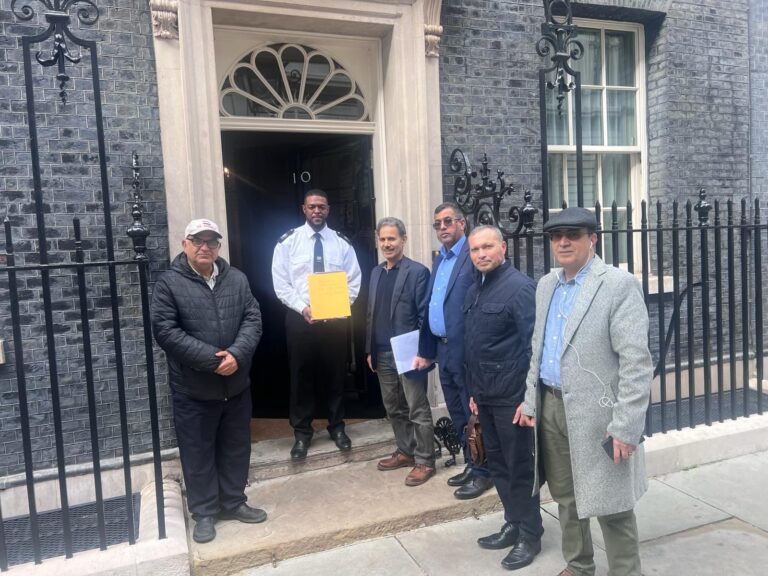Ahwazi Arab executed in Karoon Prison
The Iranian regime executed an Ahwazi Arab on 14 February, four years after he was sentenced to death by a 
Iranian regime hiding Arab bodies in unmarked graves

Iran responds to Al-Azhar conference with anti-Arab repression
The January conference at Al-Azhar
expressed solidarity with Ahwazi Arabs

Iran’s repression against Arab Sunni converts
Members of the IRGC are involved in anti-Sunni repressionAn alleged “Wahhabi sect” has been closed down in
Mandeans of Ahwaz appeal against persecution
 discrimination. The Mandeans, like the Ahwazi Arabs, are indigenous to southwest Iran. Followers of a Gnostic religion committed to non-violence, they originate from the followers of John the Baptist, pre-dating both Christianity and Islam, and continue to practice ancient baptismal rites. During the period of Arab self-rule before 1925, they were allowed to worship as they please and were able to live and work freely, often as goldsmiths and merchants. Although many Muslims recognise them as “followers of the Book”, today they endure violent persecution, particularly by Shi’ite militias in post-Saddam Iraq and under the current Iranian regime. They risk becoming extinct as they are forced into religious conversion.
discrimination. The Mandeans, like the Ahwazi Arabs, are indigenous to southwest Iran. Followers of a Gnostic religion committed to non-violence, they originate from the followers of John the Baptist, pre-dating both Christianity and Islam, and continue to practice ancient baptismal rites. During the period of Arab self-rule before 1925, they were allowed to worship as they please and were able to live and work freely, often as goldsmiths and merchants. Although many Muslims recognise them as “followers of the Book”, today they endure violent persecution, particularly by Shi’ite militias in post-Saddam Iraq and under the current Iranian regime. They risk becoming extinct as they are forced into religious conversion.Security clamp-down, executions imminent?
Sources in Ahwaz City report an intensification in security, prompting speculation that five Ahwazi Arab political 
Mothers banned from appealing against executions
The mothers of five Ahwazi Arab political prisoners facing execution were banned from meeting Ayatollah 
Global condemnation mounts over Ahwazi executions
World policy chiefs, United Nations experts and human rights organisations have united to condemn the planned
EU condemns death sentences in Iran for five Arabs
EU foreign policy chief Catherine Ashton on Tuesday urged Iran to commute death sentences against five members
Statement by EU High Representative Catherine Ashton on the confirmed death sentences and potentially imminent executions of five Ahwazi Arab men in Iran
The High Representative of the European Union for Foreign Affairs and Security Policy and Vice President of the Commission issued the following statement today:
sentences.








